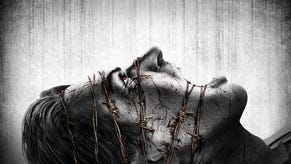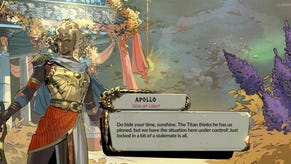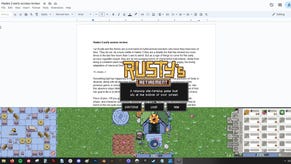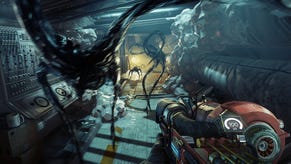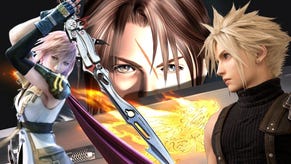An E-Sporting Chance: Stories
Important E-Sports News
This week Jeb Boone looks at the story of Flash versus Grubby, and the Electronic Sports League (ESL) Intel Extreme Masters (IEM) tournament in Singapore.
Journalists who happen to write about e-sports relentlessly search for the narrative taking place outside of the games. Admittedly, the journalist is occasionally forced to craft a narrative of their own, drawing on bits and pieces of smaller stories surrounding tournaments and competition.
It is incredibly difficult. Journalists that have found themselves stumbling into e-sports soon find that the industry has adopted a philosophy on press access akin to that of the CIA. When attempting to craft a narrative out of collection of curt conversations with players and industry figures, a story’s appeal to the general public inevitably suffers.
These narratives are vitally important for that reason. It is the charge of the journalist working (but mostly volunteering) in e-sports to demonstrate to gamers at large that professional gaming competition is an endeavor that has objective value.
It’s a hard sell.
But there are rare moments in e-sports where the narratives craft themselves.
Manuel "Grubby" Schenkhuizen is known to many as the world’s greatest WarCraft 3 player.
Playing Orc, Grubby managed to win more than 40 LAN tournaments and six world championships. Grubby was so well loved that on expeditions to China for competitions, personal bodyguards were needed to beat back hordes of adoring fans rushing to catch a glimpse of the Dutch professional gamer.
Grubby switched to StarCraft 2 at the game’s release in the summer of 2010 and began a consistent career. In spite of being one of the world’s top players, he has struggled at major tournaments, yet to take a major championship. A departure from his global dominance as a WarCraft 3 player, Grubby was grouped with the rest of “foreigners”, a StarCraft community term to denote anyone that isn’t Korean.
The consummate professional, Grubby is perpetually dissatisfied with his performance - regardless of how well he is actually playing.
Just a few weeks ago at Major League Gaming’s pro-circuit stop at Dallas, Texas Grubby was offered up in the tournament’s first match against Young Ho “Flash” Lee, StarCraft: Brood War’s most accomplished player, the winner of six of Brood War’s most coveted championships.
To fans, Flash is simply known as “God”.
“I know a secret,” said Grubby on stage to the world. “I know flash is not a god and you will know it too when I first draw blood.”

The god of Brood War, Flash preparing to face off against WarCraft 3’s greatest champion, Grubby.
What followed was difficult to watch. Grubby lost 2-0 in the best of three series against Flash. He went onto lose 2-0 against the American Zerg player, IdrA, and 2-1 against the Korean jookTo, leaving the tournament with only one map victory and zero match wins.
After his defeat, Grubby sought refuge in the calm of the press room as he does at most MLGs, choosing to remove himself from the hysteria bustling below.
Last Thursday, Grubby traveled to Singapore to compete in the Electronic Sports League (ESL) Intel Extreme Masters (IEM) tournament. In Singapore, Grubby the Champion began to show through again.
Placing into the playoff bracket, he would have to go up against Jang "MC" Min Chul - not only an Intel Extreme Masters Champion but a two-time Global StarCraft 2 League Champion, Korea’s premier tournament and the world’s most competitive e-sports arena.
Through sheer will, Grubby brought down the Korean Champion in a heated, scrappy full best of five series. Securing a spot in the semifinals, he leapt into the air and howled after his win, rushing to kiss his wife before running into the arms of adoring fans.
He went on to beat a Russian Zerg opponent in the semifinals - one that he has lost to in the majority of their past meetings, taking the series 3-2 in another full best of five. Grubby was finally in a major tournament finals. In the end, he lost the finals 3-2 but Grubby is on top of the StarCraft 2 world for the first time.
In Sweden, another return to glory was unfolding for League of Legends at Dreamhack as well. Team Fnatic, once called Shushei’s team by the League of Legends community after their team captain Maciej Ratuszniak, won Riot Games’ Season One League of Legends World Championship, the most important tournament by far for the game.
Riding high on their world finals victory, Fnatic went on to win an Intel Extreme Masters tournament in New York City. Just like Grubby and his global domination of WarCraft 3, Fnatic was beginning to install themselves as the undisputed world’s best team. Indeed, by breaking 250,000 concurrent viewers for the season one world finals, a good deal of the e-sports community began seriously following League of Legends and Fnatic acted as the games ambassadors.
But as the following season of Riot Games’ world championship series began, Fnatic’s world champion lineup started fracturing. Last January, Max "MagicFingers" Dreysse was the first to leave the team. While just a sub, fissures were beginning to broaden.

Team Fnatic at the Major League Gaming Spring Championship in Anaheim California last jun
The following summer, the Team’s Ace, Shushei, was taken off the top lane due to his poor performance. One day later, he left the team. Just one month after Shushei’s frustrated departure, long time support player Peter "Mellisan" Meisrimel left the team as well. Shortly after placing fourth at the European Regional Finals, Manuel "LamiaZealot" Mildenberger, playing the crucial attack damage carry role, departed as well.
Fighting for season two circuit points and a qualification into the world finals playoffs, their team of champions was falling apart. Since March of this year, the team has been struggling to place higher than fourth in major tournaments.
The season one world champions were floundering and no one expected that to change at the Dreamhack 2012 Winter Finals. In spite of their struggles, the team coalesced and took the tournament, the same place where they’d won the season one world championship 17 months before. Taking down one of the world’s top teams, Counter-Logic Gaming’s European League of Legends division.
As the good narratives form themselves, like Grubby’s and Fnatic’s stories, with any luck, gamers at large will begin to warm to the value and potential transcendence of professional gaming competition.
More on ESFI World.






